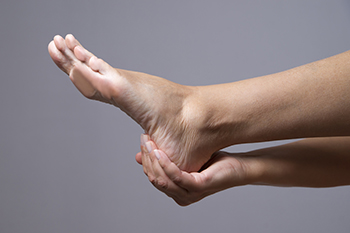
High foot arches, also known as cavus foot, often result from inherited structural differences and may not be linked to other health issues. However, high foot arches can also develop due to neurological conditions, including Charcot-Marie-Tooth disease, cerebral palsy, or spina bifida. These conditions cause muscle imbalances that affect the foot's structure, leading to the high arch deformity. High arches can cause significant discomfort and affect your balance, leading to frequent ankle sprains or other injuries. A podiatrist can evaluate your foot's structure, identify any underlying conditions, and recommend appropriate treatment options. These may include custom orthotics to provide arch support, exercises to strengthen the foot and ankle muscles, or in some cases, surgery to correct severe deformities. If you have pain in the arches of your feet, it is suggested that you schedule an appointment with a podiatrist.
Some foot conditions may require additional professional care. If you have any concerns, contact Dr. Richard T. Bauer of Summit Foot & Ankle. Our doctor can provide the care you need to keep you pain-free and on your feet.
Rare Foot Conditions
The majority of foot conditions are common and can be treated by a podiatrist. Standard diagnostic procedures are generally used to identify specific conditions and treatment can be rendered. A podiatrist also treats rare foot conditions which can be difficult to diagnose and may need extra attention and care.
There are many rare foot conditions that can affect children. Some of these can include:
- Freiberg’s disease
- Kohler’s disease
- Maffucci syndrome
Freiberg’s disease - This can be seen as a deterioration and flattening of a metatarsal bone that exists in the ball of the foot. It typically affects pre-teen and teenage girls, but can affect anyone at any age. Symptoms that can accompany this can be swelling, stiffness, and the patient may limp.
Kohler’s disease - This often targets the bone in the arch of the foot and affects younger boys. It can lead to an interruption of the blood supply which ultimately can lead to bone deterioration. The patient may limp or experience tenderness, swelling, and redness.
Maffucci syndrome - This affects the long bones in a child’s foot leading to the development of abnormal bone lesions. They are benign growths and typically develop in early childhood and the bones may be susceptible to breaking.
A podiatrist can properly diagnose and treat all types of rare foot conditions. If your child is affected by any of these symptoms or conditions, please don’t hesitate to call our office so the correct treatment method can begin.
If you have any questions please feel free to contact our office located in Latham, NY . We offer the newest diagnostic tools and technology to treat your foot and ankle needs.
